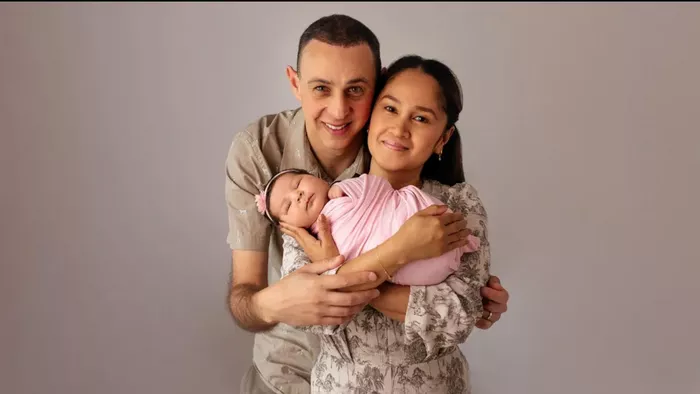Graeme and Maura Batsman, residents of Harrow in north-west London, are facing a daunting challenge in bringing their newborn daughter, Bella, back to the UK from Belarus, where she was born via surrogate. The couple describes their situation as “hellish,” navigating bureaucratic hurdles that threaten to keep them separated from their child.
Currently, the Batsmans’ visas for Belarus are set to expire next month, while the process of obtaining Bella’s British passport, essential for her return to the UK, could take an additional three months. Mr. Batsman has been informed that delaying his return to work in the UK may jeopardize his job.
The Home Office acknowledges that international surrogacy can be intricate and time-consuming, often stretching over several months. Meanwhile, the Foreign, Commonwealth and Development Office (FCDO) has indicated limited ability to intervene due to current travel advisories against Belarus.
The couple, speaking from their temporary residence in Belarus, criticized the prolonged procedures required to bring Bella back to the UK, contrasting their experience with reports of much quicker processes for couples from other nations.
Moreover, upon their return to the UK, the Batsmans anticipate up to a year-long process to establish legal parenthood for Bella, which they find unjustifiable.
The couple embarked on the surrogacy journey in Belarus prior to the geopolitical tensions involving Russia and Ukraine. Despite facing criticism for their choice of location, they emphasize that their decision was solely driven by the desire to start a family, unaffected by political considerations.
Graeme and Maura, who married in 2022 after meeting the previous year, initially explored surrogacy due to medical constraints preventing natural conception and slim chances of success with IVF treatment. With costs for surrogacy in the UK exceeding £50,000, the couple opted for Belarus due to its more favorable regulatory environment.
To date, they estimate spending approximately £35,000 on the surrogacy process, including fees for the surrogate mother’s compensation and associated expenses. The surrogate, a mother of three in her 30s, received monthly payments along with a substantial fee upon Bella’s birth.
The bureaucratic requirements for Bella’s passport and birth certificate have added to the couple’s frustrations, necessitating detailed documentation of their surrogacy journey and stay in Belarus.
In pleading for expedited processing of Bella’s passport, the Batsmans appeal to the British authorities to facilitate their reunion as a family, fearing the consequences of potential deportation without their daughter and the loss of Mr. Batsman’s job.
Reflecting on their arduous journey, Mr. Batsman remains optimistic that their ordeal will eventually lead to a positive outcome, despite the current hardships.
“We began this journey two and a half years ago, and it has been a continuous struggle,” he said. “While challenging, the desire to have a child remains steadfast.”


